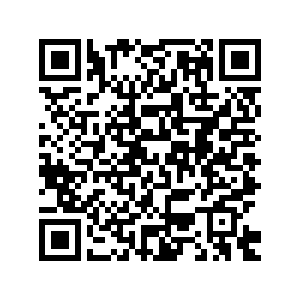Editor's note: This week Xinhua is releasing a series of five commentaries about the United States' "forced labor" accusations against China, and the following is the third piece.
BEIJING, May 30 (Xinhua) -- The repeated accusations by U.S. politicians of "forced labor" practices in China's Xinjiang might bring to mind horrific pictures of chained-up people toiling under the crack of whips.
However, such scenes are nowhere to be found in modern-day Xinjiang. Instead, they can be easily spotted in the pages of Harriet Beecher Stowe's Uncle Tom's Cabin, which to this day stands as a testament to America's dark history involving the worst form of forced labor.
For one-third of its 248-year history, slavery was woven into the very fabric of the American nation. According to German data firm Statista, there were about 700,000 black slaves in the United States in 1790, and by 1860, this number had surged to over 3.95 million.
The primitive accumulation of capital in the early days of the nation was the result of the blood and sweat of black slaves, who were sold into brutal conditions and forced to work. For example, in just six decades, from 1800 to 1860, the ruthless exploitation of slave owners saw cotton production in the United States increase 130-fold.
Ironically, the U.S. now frequently highlights, and even fabricates, claims of forced labor in the cotton harvesting and textile industries of other countries. This focus on external targets diverts attention from its own labor issues, raising questions about its true intentions.
While the U.S. Civil War is celebrated for abolishing the archaic system of chattel slavery, it has failed to fully eradicate the exploitation of labor. Instead, insidious forms of modern slavery have emerged, continuously plaguing American society.
Even the U.S. government acknowledges that forced labor persists to this day. The Department of Homeland Security notes that victims of forced labor in the U.S. can be citizens or individuals from nearly every region of the world, regardless of their legal status upon entry.
The U.S. claims to be a "melting pot" and a "paradise" for immigrants, but for many, this illusion may shatter upon arrival. The Associated Press reported that for many years, immigrants smuggled into the U.S. have been forced to work long hours on farms, live in dirty, crowded accommodation, suffer from a lack of food and clean drinking water, and frequently face violent threats from overseers.
The exploitation of immigrants has drawn attention from the UN. In 2018, UN Special Rapporteur on Contemporary Forms of Slavery Urmila Bhoola highlighted in her report the issues of forced and bonded labor, sexual violence and deportation threats against women migrant workers in U.S. tomato farms.
Another long-standing issue is child labor. American mines, tobacco farms, and textile factories began hiring and exploiting children over a century ago. Despite laws and regulations supposed to protect minors put in place, the problem persists.
Last year, the U.S. Department of Labor found 5,792 minors working in violation of child labor laws in the 2022-2023 fiscal year, the highest level in nearly two decades. Packers Sanitation Services Inc., one of the largest food safety sanitation services providers in the U.S., paid 1.5 million dollars in penalties after it was found to have employed more than 100 children aged 13 to 17 to clean slaughterhouses, using caustic chemicals to wash razor-sharp saws and other high-risk equipment.
The United States' poor labor record has a spillover effect as corporate America outsources production to regions around the world.
In 2019, The Washington Post put child laborers on West African cocoa farms into the spotlight. Some of the biggest and best-known brands, including Hershey and Mars from the U.S., could not guarantee that any of their chocolates were produced without child labor, the newspaper reported.
American tire maker Goodyear was sued multiple times by foreign workers at its Malaysian factory for unpaid wages, unlawful overtime and the denial of full access to their passports.
With forced labor issues within its borders and its firms' labor abuses across the globe, the United States stands in no position to discredit other countries and propagate false claims about "forced labor."
By hurling mud at Chinese companies in the textile and other sectors, the U.S. just provided another vivid example of its hypocrisy and double standards. The "forced labor" rhetoric increasingly appears to be merely Uncle Sam's tool for political manipulation and economic coercion.
"People who live in glass houses shouldn't throw stones." Washington should clean up its own backyard and stop telling others what to do or making fabricated accusations to serve its own interests. ■
